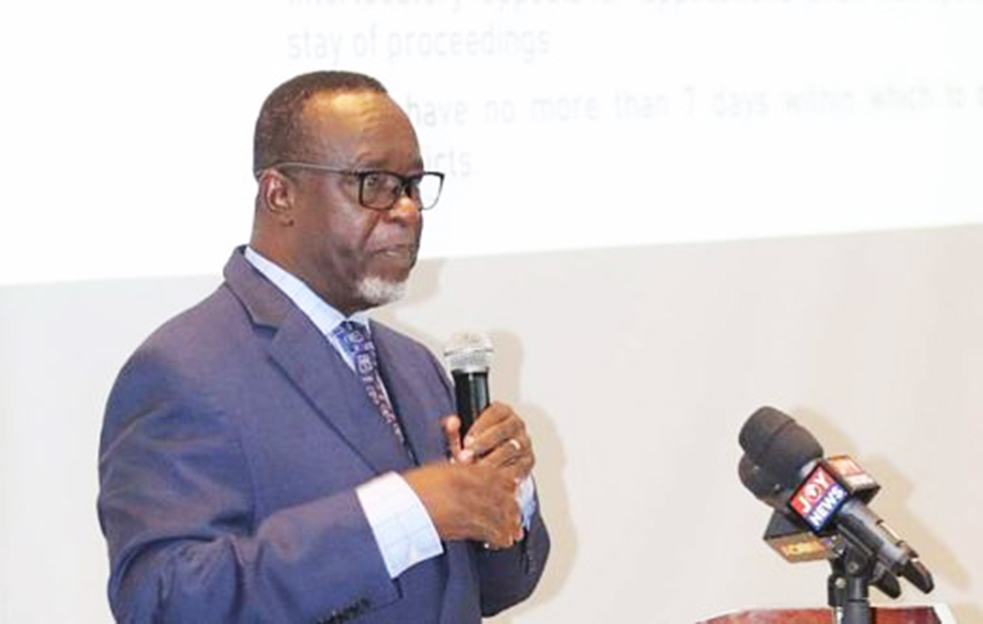Acting Chief Justice Paul Baffoe Bonnie has cautioned judges and magistrates against the growing reliance on painkillers, warning that the misuse of such drugs poses serious health dangers to members of the bench.
Speaking at the 44th Annual Conference of the Association of Magistrates and Judges of Ghana (AMJG) in Accra, themed “Leveraging Technology to Enhance Justice Delivery”, Justice Baffoe Bonnie expressed concern about the increasing culture of self-medication among judicial officers.
He disclosed that many judges and magistrates regularly turn to over-the-counter drugs such as diclofenac and ibuprofen to cope with heavy workloads, often taking them without prescriptions and in unsafe quantities.
“Most of us as judges and magistrates are used to quick-fix drugs so that we get our business going. These drugs are often misused and abused, frequently taken without prescriptions, in high doses or over prolonged periods. The health risks include stomach ulcers, internal bleeding, kidney damage, liver damage, heart attack, and stroke,” he said.
Justice Baffoe Bonnie urged members of the judiciary to be mindful of their health and also to provide moral leadership on wider national issues such as drug abuse, illegal mining, and environmental degradation.
While acknowledging that the judiciary is not a policymaking body, he stressed that its role in ensuring fairness and upholding the law is critical to confronting such challenges.
“We must ensure that prosecutions related to illegal mining and drug trafficking are handled with seriousness and urgency. No person, regardless of political affiliation or social status, should be immune from justice,” he noted, calling for consistency in sentencing to counter perceptions that punishments for such offenses are too lenient or inconsistently applied.
He also revealed plans to refine and expand specialized courts to focus on environmental and drug-related offenses, underscoring the judiciary’s determination to respond effectively to emerging threats.
On his part, Samuel Afotey Otu, National President of the Judicial Service Staff Association of Ghana (JUSAG), highlighted the need for digitization as a tool to modernize justice delivery.
He said technology had the potential to transform the courts by improving efficiency, transparency, and public trust.
“Let us imagine a judicial system where a litigant in a remote village can file a case electronically, a lawyer receives instant notification when a judgment is uploaded, and citizens can easily access court schedules online. This is not a dream; it is within our reach,” Mr. Otu said.
He stressed, however, that cybersecurity must be treated as a priority to protect judicial systems from disruptions, citing recent cyberattacks on court infrastructures in the United States and the United Kingdom as cautionary examples.
The JUSAG President further appealed to the government to provide vehicles for lower bench judges to aid their work and renewed calls for an increase in the Judiciary’s retention of internally generated funds (IGF) from 30 percent to 70 percent.
He noted that judicial staff play a central role in the digitization process and must receive adequate training to adapt to new systems.
The conference, which brought together judges, magistrates, judicial staff, government officials, and legal practitioners, provided a platform for stakeholders to deliberate on strengthening justice delivery in line with global technological advancements.
